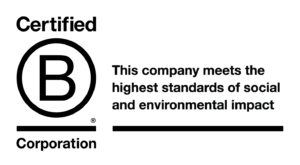Applying for work can be a cold and demotivating process. You might put hours of work into a submission and still fail to get a callback. With so much competition, standing out from the pack can be a real challenge.
It doesn’t have to be that way, though. A great application will grab hiring managers’ attention like honey draws flies. Optimizing your resume can expose you to new opportunities and help you reach your career goals faster.
So how do you achieve these results? You’ll need to customize your resume to suit your background and industry, but these resume tips will set you off on the right track.
1. Formatting Is Crucial
It’s a well-known fact that hiring managers only spend an average of 15 seconds on each resume they receive. A messy, disorganized submission won’t buy you any more time. Your C.V. needs to be clean of errors and easy to read if you want to get the attention you deserve.
Use an appealing yet distinctive template to format your resume. As you proofread, you should ensure your font and character size are consistent. These resume tips alone could earn you a crucial second glance from a hiring manager.
2. Eliminate Unnecessary Information
How do you want hiring managers to remember you: as a qualified professional with years of experience, or as someone who included high school volunteer hours on a resume?
Your reader’s attention is a valuable commodity. You can’t afford to squander it on inessential details. Hiring managers are only concerned with experience that pertains to the positions they’re seeking to fill. Give them only as much information as they need to see you as a viable candidate, and delete the rest.
3. Frontload Your Resume
The second half of your resume will go unread in many cases. You can’t let your reader leave without seeing your best qualities.
Place your most relevant experience and qualifications in the top half of your C.V. Hiring managers will be more likely to see them, which will help you make a better first impression.
4. List Concise (Yet Specific) Accomplishments
In Hamlet, William Shakespeare wrote, “brevity is the soul of wit,” and this sentiment applies to resumes and Danish princes alike. No one wants to read a long, tedious list. It takes more skill to distill your achievements into a succinct and revealing portrait of your professional life.
Focus on your most impressive accomplishments when you list your experiences. Consider how your previous workplaces benefitted from your service, and consider how you can use these abilities to help a new employer. A pared-down approach to resume writing will give readers a clearer sense of your best qualities.
5. Choose Your Words Carefully
Words matter when you need to make a great first impression. Lifeless writing shows a lack of conviction or interest in a topic. If that topic happens to be your own career, your job prospects will suffer.
Use strong verbs and simple sentence structures when you draft your resume. Try to be as expressive as possible, and avoid unnecessary repetition. You’ll be much more likely to land an interview if you can demonstrate your expressiveness and individuality in writing.
6. Present a Unified Employment History
Modern career paths rarely follow a straight line, but employers may worry if yours looks more like a series of zig-zags. Think of your employment history like a story. You need to show how your experience led you to the current opportunity, even if you most recent position was dissimilar. Include your most applicable experience and emphasize transferrable skills.
7. Write a New Resume for Every Job
Even two similar positions can carry drastically different responsibilities and requirements. Consider your prospective employer’s expectations, goals, and company culture, and tailor your C.V. to meet them.
For more tips and advice check out these related blogs:
Should the resume be replaced?







